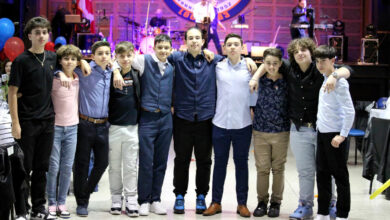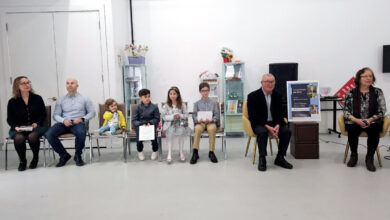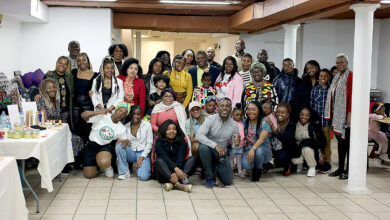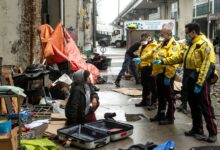During October thousands of campaigns are made regarding breast cancer awareness, bringing the color pink everywhere. But what we really know about this disease who ravages the life of 2M women every year? Around 82K just in Canada.
Breast cancer accounts for approximately 26% of new cases of cancer and 13% of all cancer deaths in canadian women. One in eight women are expected to develop during her lifetime and one in 31 will die of it.
Breast cancer can begin in different areas of the breast – the ducts, the lobules and sometimes the tissues in between. Can be invasive, non-invasive, hormone receptor positive or negative.
Doctors analyzes the genes of cancer cells, hoping to find ways to target specific aspects of the cancer cells to kill them. Every single case of breast cancer is different and the final results depends on how the patient response to treatments. Radiotherapy, chemotherapy, surgery, targeted therapy and hormonal therapy are the most commonly used treatments to fight breast cancer but patients usually change their diets, become more active in physical exercise, and take care of their minds, doing alternative therapies, meditating, and seeking help from others who are passing through the same. Cancer stages range from 1 to 4, the latter being considered metastatic breast cancer, or in other words, incurable.
Everyone knows someone who has or had breast cancer, an aunt, a friend, a friend of a friend. The majority still see cancer in older people but the truth is that no one is never too young to get sick. Fighting cancer at any age is very difficult and requires a lot of physical and emotional strength, but how do you face the possibility of death when you are in your 20s?
Sarah and Emily are two young canadian women who were diagnosed with breast cancer in their 20s. They inspire hundreds of lives for speaking openly about their battle against cancer and how they live despite the diagnostic.

Lawyer but currently the Community and Programs Specialist at Rethink Breast Cancer. Diagnosed with stage 3, triple positive breast cancer at 27.
What kind of cancer do you have?
Invasive Ductal Carcinoma.
How did you get your diagnosis?
I felt a lump one day, went to my family doctor who wasn’t concerned but she sent me for an ultrasound and biopsy anyways. The Radiologist said it looked like normal dense tissue so didn’t biopsy the lump but sent me for a mammogram instead which came back negative. Within 3 months the lump tripled in size and now took up my entire breast. I went back to my family doctor who sent me to a different hospital to get that ultrasound and biopsy. This Radiologist almost didn’t even come into the room to see me because the ultrasound images looked like normal dense tissue but I pushed to get that biopsy which ultimately came back as breast cancer. Once the results came in I had a biopsy of my lymph nodes so we knew the cancer had already spread there.
What kind of treatments did you did? And currently?
Six months of chemo, double mastectomy and immediate reconstruction, 25 rounds of radiation, a year of Herceptin treatments, three more reconstructive surgeries (my original implants failed due to radiation so I ultimately had the DIEP Flap surgery two years ago). I’m currently doing hormone therapy for 10 years which puts me in medically induced menopause.
Why is so important the early diagnosis of breast cancer?
Advocating for myself was really important because the cancer would have continued to spread if I had not been diagnosed when I did (which was already months after I initially found the lump). However, being diagnosed with early stage breast cancer does not mean I won’t be re-diagnosed with Metastatic Breast Cancer (MBC). 20 – 30% of people diagnosed with early stage breast cancer will be re-diagnosed with MBC.
How did your life change after BC?
I had just graduated from law school when I received my breast cancer diagnosis. I had to take a year to go through active treatments, then I articled and was called to the Bar the following summer. While recovering from my last surgery I attended Rethink’s Stretch Heal Grow retreat for young women who have been diagnosed with breast cancer, which changed my life. I now get to work at Rethink and help other women who have been diagnosed with breast cancer on a daily basis. I have different priorities now after my diagnosis. I try to eat well, exercise daily, get enough sleep and share my experience with others to hopefully make cancer a bit easier on the next woman who has just been diagnosed.
What are your biggest fear?
One of my biggest fears is getting diagnosed with MBC. Through my work at Rethink, I’m facing my fears head on which makes me feel like I have a bit of control back in my life.
How the IG community help you on your journey?
I recently created a year of content for Instagram called #52wayscancerchangedmylife. Every week starting on my 3rd cancerversary and ending on my 4th, I posted the good, the bad, or the ugly of cancer to show the world what life after a cancer diagnosis really feels like and also to show other young cancer survivors that they are not alone. It was also really cathartic for my own healing.
What is the biggest tip you can give to someone who just were diagnosed with BC?
Breast cancer sucks but there will be good days mixed in with the bad. Enjoy those days. My mantra for the bad days was “Tomorrow is a new day and will be a bit better.”
You are part of Rethink Breast cancer. How Rethink help young woman with BC?
Rethink helps young women with breast cancer through programs, education, support and advocacy. We have two yoga and meditation retreats a year, a monthly meetup for women to support one another, and a panel discussion on a different topic every year with women from our community and experts in the field. We also have resources for young families on how to tell your kids about breast cancer, metastatic breast cancer and a picture book for children to read. We also have a patient handbook that is full of personal stories of other women going through breast cancer. We also have a moderated closed Facebook group for young women who have been diagnosed with breast cancer that is a great place to ask questions from people who have been there and get support from people who just get it.
How can we support/help women in need with rethink breast cancer?
You can donate at www.rethinkbreastcancer.com/donate, and follow us on social media (@rethinkbreastcancer on Instagram and Facebook or @rethinktweet on twitter). You can also sign up to be an MBC Ally at www.rethinkbreastcancer.com/allies. Rethink’s mission is to double the survival rate of women with MBC focusing on two challenges – improving policy and funding research. One way we’re helping to increase MBC research funding is by launching the MBC Fund. Through donations from partners and individual allies, we will address the gaps and specific needs of women with MBC through support and research programs.

speech-language pathologist from NL, living in Vancouver. Currently living with stage 4 metastatic breast cancer.
What kind of cancer do you have?
More specifically, I have de novo (stage 4 cancer) oligometastatic breast cancer (ER+, PR-, HER2+). Many people with stage 4 cancer have had a recurrence after a previous cancer diagnosis, but mine has been stage 4 from the start. My cancer is also considered oligometastatic (a newer term) which essentially means that although the cancer has spread to another part of the body, it has only spread to one area and in a small amount. Patients who are oligometastatic have shown very reassuring long-term disease-free survival rates (raising the question of a possible cure).
How did you deal with your diagnosis?
As you can imagine I was devastated when I found out. I was completely in panic mode and was convinced that I was dying. But eventually I learned to take things day by day, and slowly but surely, I started to feel more accepting and optimistic about my diagnosis.
What is the difference between breast cancer and metastic breast cancer?
Metastatic breast cancer means there is never really a “finish line” in sight because you’ll be receiving treatment and scans for the rest of your life. It means you can never really leave cancer behind in the past to look back on as something you once conquered. Instead you have to keep fighting it, every day, and learn to live life with fear and uncertainty close to your heart.
What is the feeling of being so young with a stage 4 breast cancer?
Having metastatic breast cancer in your 20s is extremely isolating. All my friends are planning weddings and talking about having children, while I’m in medically-induced menopause and living from scan to scan. As a young woman, cancer has also completely changed my relationship with my body. Some days, it feels like my body is someone else’s after all it’s been through. It’s hard to accept that things look and feel different. I’m still learning to be more kind and patient towards both my mind and body.
What is the biggest tip you can give to someone who just were diagnosed with BC?
Fighting cancer can feel like a very lonely battle sometimes, but it’s important to remember that you’re not alone. Joining support groups in person and online is one of the best ways to process a cancer diagnosis. No one can understand you better than someone who is going through something similar. Cancer brings so many emotions, and it’s impossible to process them all on your own. It’s important to find a counsellor or psychologist that you trust and feel comfortable talking with. It’s also just as important to share how you’re feeling with friends and family, and to lean on them when needed.
How you deal with your emotions?
I practice a lot of yoga and try to keep a regular meditation practice. I also try to stay active every day whether it be from running, going to the gym, or trying a new fitness class. Acupuncture and massage therapy have also been extremely helpful in managing the physical side effects of cancer. In terms of preventing a recurrence, I also try to eat as healthy as I can (but I’m not militant about it). I try to cook at home as much as possible and I eat a primarily plant-based diet. I also try to reduce processed foods and buy organic when I can. I’m definitely not perfect, but I try my best.
What people need to know about metastatic breast cancer?
It’s important for people to know that metastatic breast cancer means you’re never really “done” with cancer. It’s always at the back of your mind and also casts a large shadow over your future. But it’s also so important to live life to the fullest, otherwise you’re letting cancer win. I want people to know that you can still live a happy and full life with metastatic breast cancer. Many people do. It may not be the life you always envisioned for yourself, but you can definitely still thrive with cancer.
Why social media community is important to your recovery path?
Instagram and other online cancer communities have been amazing throughout my journey. Seeing everyone’s day to day life is a constant reminder that I’m not alone, in fact I’m far from it. Online I can talk to thousands of other young women just like me with breast cancer (many of whom are also metastatic). We cheer each other on and lean on each other for support and advice. I decided to share my own story on my blog and Instagram so that other young women could find me and reach out. It’s been amazing to have so many women from around the world connect with me online and tell me that my story has helped them feel less alone.
What changed in you after breast cancer?
Cancer has made me a better person. I live more for the present moment, I feel more connected to the world around me, and I don’t worry as much about the little things. I like to joke that cancer has forced me to do 10 years-worth of personal growth in just 1 year, but it really feels like I have. I’m grateful for all the ways I’ve grown throughout this journey, and I’m grateful that cancer has helped me see what truly matters.
What are your life goals?
I want to travel the world. I want to have a child one day (if possible). I want to continue to grow my career and become more confident in myself as a woman. Above all else, I just want to be happy and to continue sharing my life with my partner, friends, and family.
What is the biggest tip you can give to someone who just were diagnosed with BC?
My advice for someone who has just been diagnosed is to take everything one day at a time. It’s easy to get caught up in all the “what ifs” of the future, but worrying about what’s to come in a year, month, or even week, won’t serve you. You just need to focus on how to make it through one day at a time. Eventually you’ll make it through to the other side and you’ll find yourself again.








Redes Sociais - Comentários